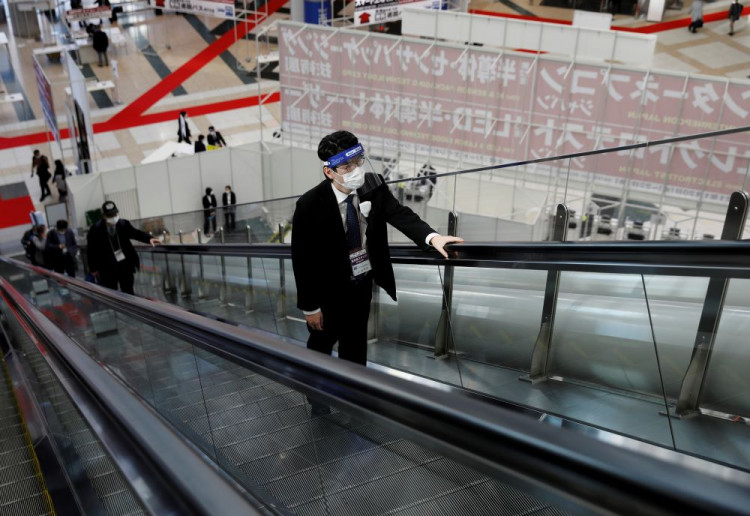Japan's current account surplus was approximately $6 billion in January - little changed from a year ago, according to Finance Ministry data Monday.
The current account balance registered a surplus of 646.8 billion yen ($6 billion) - down 2.3% from a year ago.
The services trade balance logged a deficit of 480.9 billion yen - more than tripling from the previous year's deficit of 142.2 billion yen as the travel surplus continued to see a significant fall due to strict travel restrictions by countries attempting to contain the virus spread.
The travel balance shows the amount of money spent by visitors from overseas in Japan against the spending of Japanese travelers abroad. It logged a 25.0-billion-yen surplus in January, down 91.6% from 296.2 billion yen a year earlier.
The surplus in primary income, which reflects returns on overseas investments, also plunged 22.1% from the previous year to 1.47 trillion yen.
A ministry official said a decrease in returns on bond investments due to lower interest rates globally as well as a drop in sales for Japanese firms' overseas subsidiaries contributed to the outcome.
Meanwhile, the country's goods trade balance improved to a deficit of 130.1 billion yen - shrinking 86.9% from a 990.4-billion-yen deficit the previous year, but the January figure marked the first red ink in seven months.
Exports grew 2.7% from the previous year to ¥5.69 trillion for the second monthly rise. They were supported by brisk demand for semiconductor production equipment from South Korea and plastic from China, the official said.
The relatively solid performance came despite a second state of emergency over the virus declared earlier that month for the Tokyo metropolitan area that was later expanded to other parts of the country.
Imports declined 10.9% to 5.82 trillion yen for the 21st consecutive month of decrease, on falling crude oil prices and drops in demand for clothing from China.





